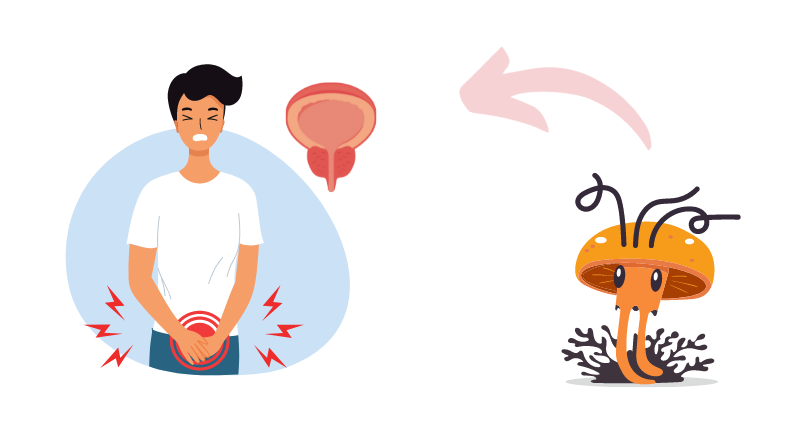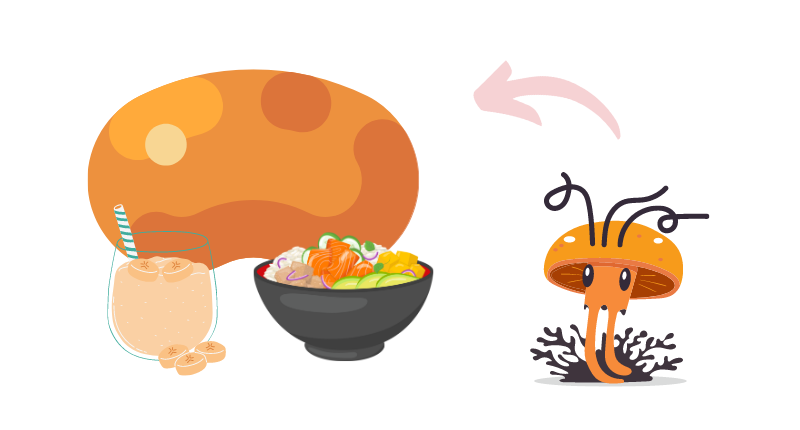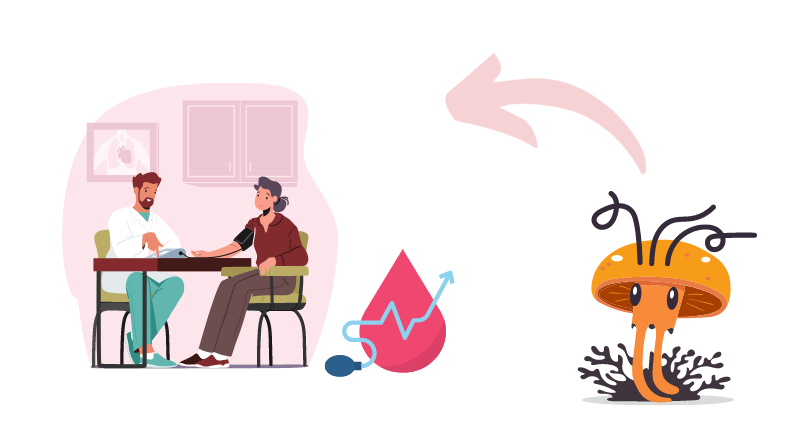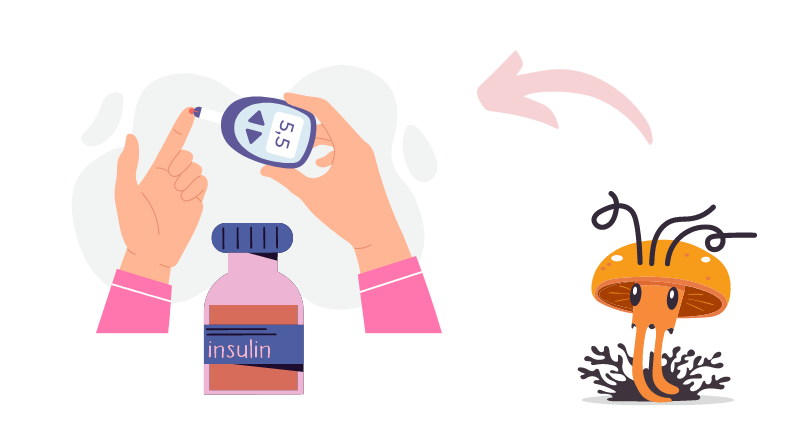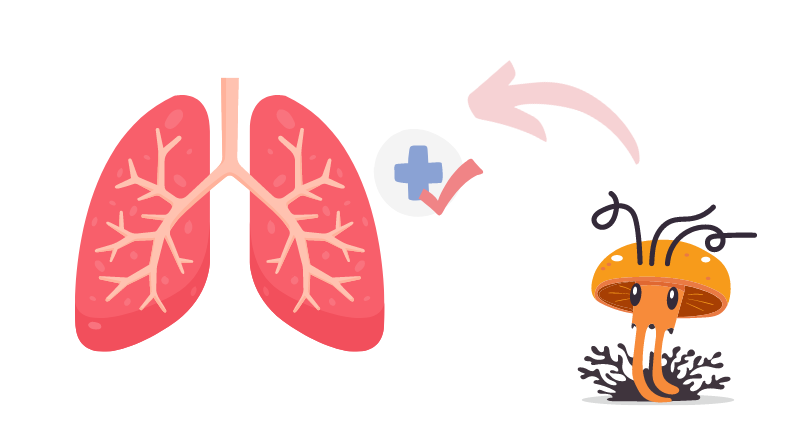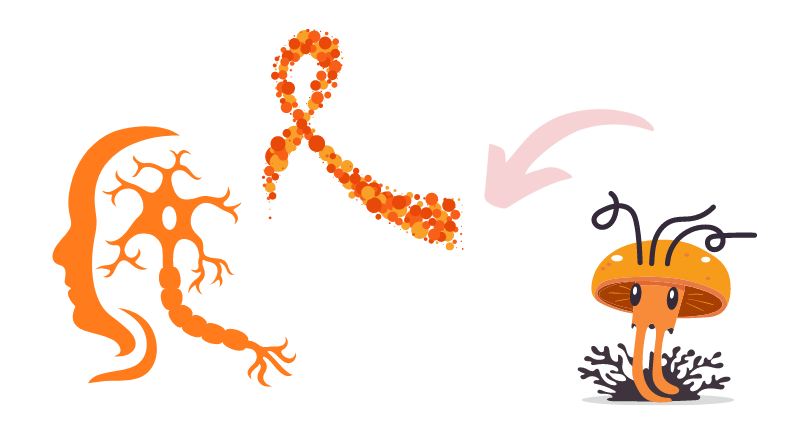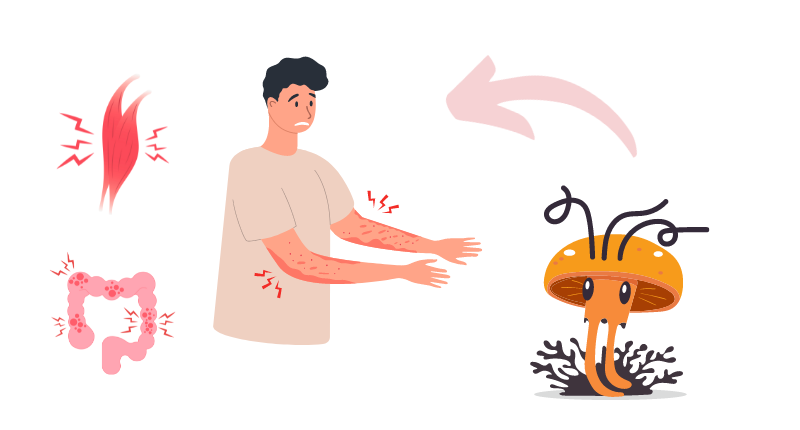In this article, we will delve into the world of cordyceps and alcohol to explore their interactions and effects on our health. The popularity of cordyceps has been on the rise as more people are discovering its numerous health benefits, while alcohol remains a common social and recreational beverage. However, it’s important to understand the implications of consuming these two substances together. We’ll cover everything from the basics of what cordyceps and alcohol are, to the potential benefits and risks associated with their consumption.
INTRODUCTION TO ALCOHOL
Alcohol is a widely consumed psychoactive substance that has been a part of human culture for thousands of years. It is produced through the fermentation of sugars by yeast, resulting in a variety of alcoholic beverages, including beer, wine, and spirits. While moderate alcohol consumption has been associated with some health benefits, excessive alcohol intake can lead to a range of health issues, such as:
- Liver disease
- Cardiovascular problems
- Increased risk of certain cancers
- Impaired cognitive function
- Alcohol dependence
As a central nervous system depressant, alcohol affects various neurotransmitter systems in the brain, altering mood, cognition, and behavior[^3^].
CORDYCEPS AND ALCOHOL: POTENTIAL BENEFITS
Combining cordyceps and alcohol may offer some potential benefits, as long as they are consumed responsibly and in moderation.
ENHANCED LIVER PROTECTION
Both cordyceps and moderate alcohol consumption have been linked to liver protection. Cordyceps has been shown to reduce inflammation and oxidative stress in the liver, which can help protect against liver damage[^4^]. Similarly, moderate alcohol intake has been associated with a reduced risk of developing non-alcoholic fatty liver disease[^5^].
SUPPORTED IMMUNE FUNCTION
Cordyceps is known for its immune-boosting properties, thanks to its polysac charides and other bioactive compounds[^6^]. While excessive alcohol consumption can suppress the immune system, moderate alcohol intake may actually have a positive effect on immune function. Studies have shown that moderate alcohol consumption can enhance the body’s immune response, potentially reducing the risk of infections[^7^]. Combining cordyceps and moderate alcohol consumption could potentially support immune function.
IMPROVED CARDIOVASCULAR HEALTH
Cordyceps has been shown to improve blood circulation and protect against oxidative stress, which can contribute to better cardiovascular health[^8^]. Moderate alcohol consumption, particularly red wine, has also been linked to a reduced risk of heart disease and improved cardiovascular health, thanks to its polyphenol content and potential anti-inflammatory effects[^9^]. The combination of cordyceps and moderate alcohol consumption may provide synergistic benefits for cardiovascular health.
CORDYCEPS AND ALCOHOL: POTENTIAL RISKS
Despite the potential benefits of combining cordyceps and alcohol, there are also potential risks that need to be considered.
INTERACTIONS WITH MEDICATIONS
Both cordyceps and alcohol can interact with various medications, potentially leading to adverse effects or reduced efficacy of the drugs. For example, cordyceps may interact with anticoagulants, immunosuppressants, and hypoglycemic agents[^10^]. Alcohol can interfere with the metabolism and efficacy of numerous medications, including antibiotics, antidepressants, and pain relievers[^11^]. Combining cordyceps and alcohol while taking medications could increase the risk of drug interactions.
IMPAIRED COGNITIVE FUNCTION
As a central nervous system depressant, alcohol can impair cognitive function, particularly when consumed in excessive amounts. Cordyceps, on the other hand, has been shown to have potential neuroprotective effects and may improve cognitive function[^12^]. However, the cognitive benefits of cordyceps could potentially be negated by the negative effects of alcohol on brain function.
INCREASED RISK OF LIVER DAMAGE
While moderate alcohol consumption and cordyceps may offer liver protection, excessive alcohol intake can lead to liver damage, including fatty liver, alcoholic hepatitis, and cirrhosis[^13^]. Combining cordyceps with excessive alcohol consumption could potentially exacerbate liver damage, counteracting the liver-protective effects of cordyceps.
MORE READING: CORDYCEPS FOR KIDNEY: UNRAVELING THE MIRACLE OF MUSHROOMS
SAFETY CONSIDERATIONS AND RECOMMENDATIONS
To minimize potential risks and maximize the potential benefits of combining cordyceps and alcohol, it’s essential to consider the following safety recommendations:
- Moderate alcohol consumption: Limit alcohol intake to moderate levels, which is typically defined as up to one drink per day for women and up to two drinks per day for men[^14^].
- Consult with a healthcare professional: If you are taking medications or have any pre-existing health conditions, consult with a healthcare professional before combining cordyceps and alcohol to avoid potential interactions and adverse effects.
- Choose high-quality cordyceps supplements: Opt for reputable and high-quality cordyceps supplements to ensure you are getting the most beneficial compounds and avoid contaminants.
- Monitor your body’s response: Pay attention to your body’s response when combining cordyceps and alcohol, and discontinue use if you experience any adverse effects.
CONCLUSION
The interaction between cordyceps and alcohol can offer potential benefits, such as enhanced liver protection, supported immune function, and improved cardiovascular health, when consumed responsibly and in moderation. However, there are also potential risks, including interactions with medications, impaired cognitive function, and increased risk of liver damage, particularly with excessive alcohol consumption. By following safety recommendations and consulting with a healthcare professional, you can minimize potential risks and maximize the benefits of combining cordyceps and alcohol.
It’s important to remember that individual responses to cordyceps and alcohol can vary, and the information provided in this article should not be considered medical advice. Always consult with a healthcare professional before making any significant changes to your diet, supplement regimen, or lifestyle.
REFERENCES
- Sung, G.-H., Hywel-Jones, N. L., Sung, J.-M., Luangsa-ard, J. J., Shrestha, B., & Spatafora, J. W. (2007). Phylogenetic classification of Cordyceps and the clavicipitaceous fungi. Studies in Mycology, 57, 5–59. https://doi.org/10.3114/sim.2007.57.01
- Tuli, H. S., Sharma, A. K., Sandhu, S. S., & Kashyap, D. (2014). Cordycepin: a bioactive metabolite with therapeutic potential. Life Sciences, 109(1), 43–50. https://doi.org/10.1016/j.lfs.2014.05.014
- Koob, G. F., & Le Moal, M. (2008). Addiction and the Brain Antireward System. Annual Review of Psychology, 59(1), 29–53. https://doi.org/10.1146/annurev.psych.59.103006.093548
- Li, X. T., Li, H. C., Li, C. B., & Dou, D. Q. (2011). Protective effects on liver, kidney and pancreas of enzymatic- and acidic-hydrolysis of polysaccharides by spent mushroom compost (Hypsizigus marmoreus). Food Chemistry, 127(3), 1013–1020. https://doi.org/10.1016/j.foodchem.2011.01.059
- Dunn, W., Xu, R., Schwimmer, J. B., & al., e. (2008). Modest wine drinking and decreased prevalence of suspected nonalcoholic fatty liver disease. Hepatology, 47(6), 1947–1954. https://doi.org/10.1002/hep.22292
- Zhang, G., Huang, Y., Bian, Y., Wong, J. H., Ng, T. B., & Wang, H. (2016). Hypoglycemic Activity of the Fungi Cordyceps militaris, Cordyceps sinensis, Tricholoma mongolicum, and Omphalia lapidescens in Streptozotocin-Induced Diabetic Rats. Applied and Environmental Microbiology, 72(10), 6257–6262. https://doi.org/10.1128/AEM.00913-06
- Romeo, J., Wärnberg, J., Nova, E., Díaz, L. E., Gómez-Martinez, S., & Marcos, A. (2007). Moderate alcohol consumption and the immune system: a review. British Journal of Nutrition, 98(S1), S111–S115. https://doi.org/10.1017/S0007114507838049
- Zhu, J.-S., Halpern, G. M., & Jones, K. (1998). The scientific rediscovery of an ancient Chinese herbal medicine: Cordyceps sinensis. Journal of Alternative and Complementary Medicine, 4(3), 289–303. https://doi.org/10.1089/acm.1998.4.3-289



